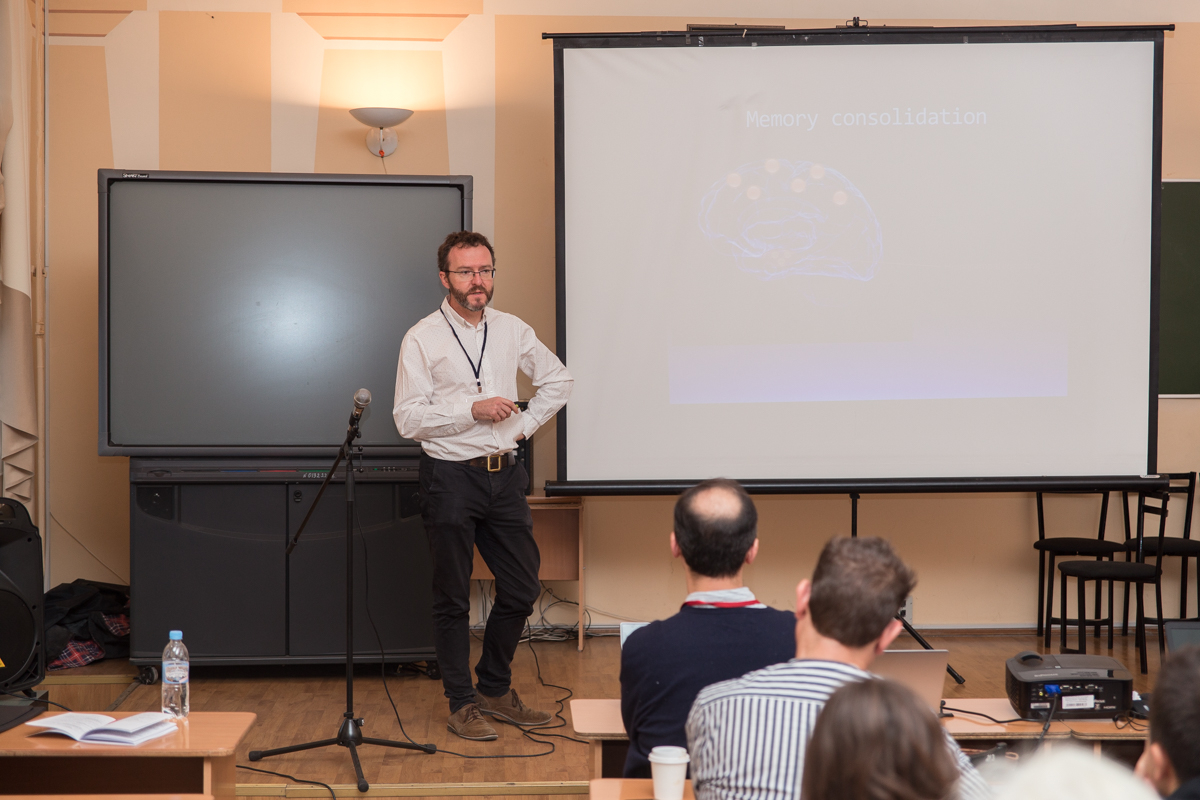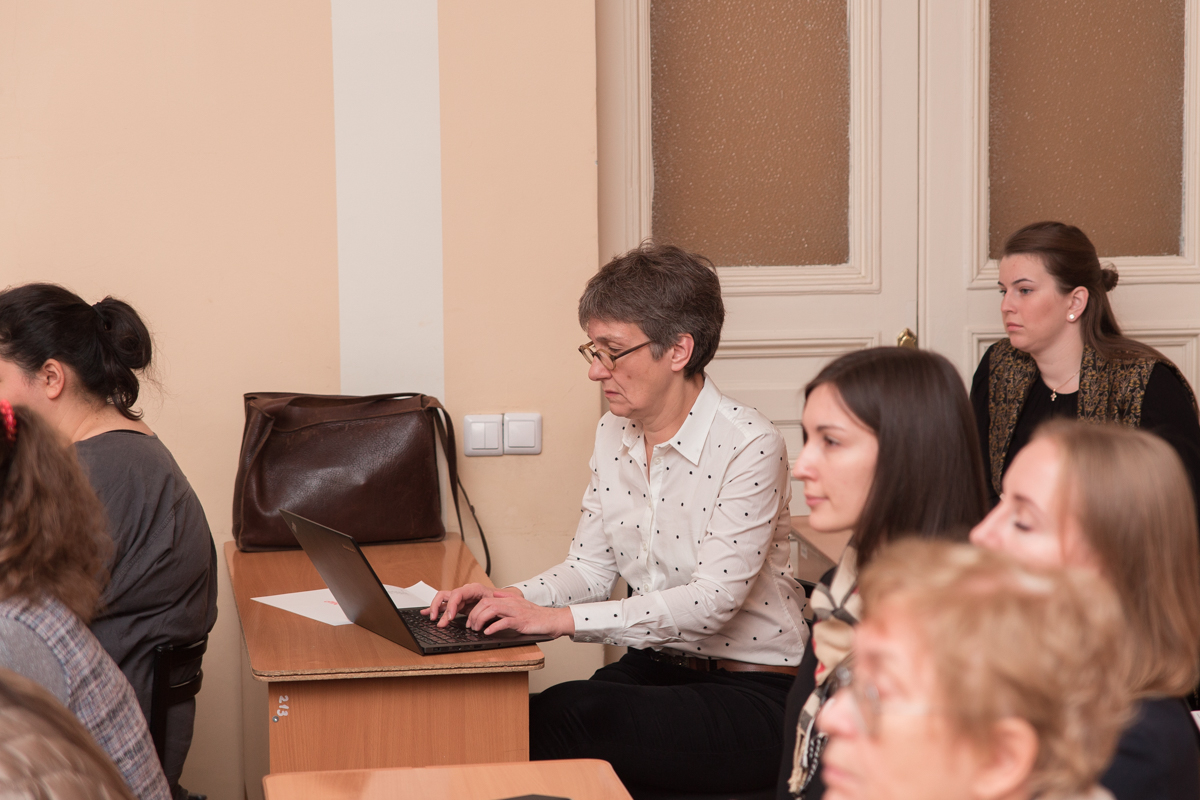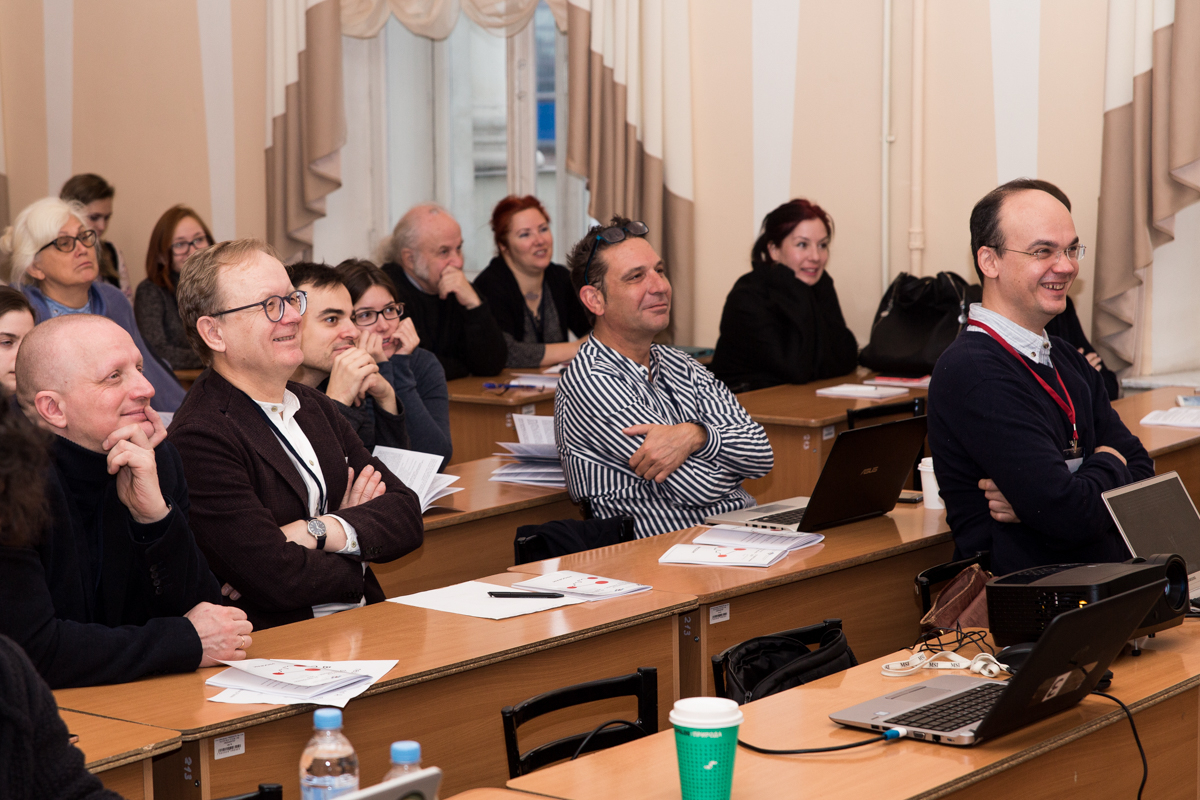How brain and speech interact: Seminar in neurobiology of language at SPbU
St Petersburg University, with Russian and international scientists, has hosted a scientific seminar on Neurobiology of Language and Speech. The seminar focuses on the neuro-cognitive research and behavioural studies of speech functions.
The research seminar, held as part of the Government’s grant, focuses on psychological and psycho-physiological processes that underlie speech production and our use of language.
Among those who told us about their research outcomes were:
- Pr. Albert Costa (Pompeu Fabra University, Spain)
- Pr. Garret Gaskell (University of York, UK)
- Pr. Matti Laine (University of Turku, Finland)
- Pr. Elena Grigorenko (University of Huston, USA)
- Pr. Iurii Shtyrov (Aarhus University, Denmark)
The last two scientists are visiting professors at SPbU who are the heads of the laboratories established with support of the Government’s programmes to attract the world’s leading scientists.
Formed in 2017 with support of the Government of the Russian federation, the SPbU’s Laboratory of Behavioral Neurodynamics is primarily concerned with the cognitive neurosciences with a specific focus on how to use and understand language and speech.
Today, little is said or written about how our brain perceives and processes information. However, science is, slowly but surely, gaining momentum in revealing the factors of how we develop, perceive, and learn speech stimuli and languages. The head of the Laboratory of Behavioural Neurodynamics Iurii Shtyrov delivered a report on neural mechanisms of learning new words.
The scientists carried out an experiment: people who took part in the experiment were given hundreds of phonetically similar words that have different meanings, some of the words being real, while some of them being pseudo-words. The amplitude of electrical activity in our brain we when perceive real words is considerably higher than when perceiving the words we don’t know.
“Presumably, the recorded activity reflects how we activate the words that exist in our brain, so-called traces of words, neural networks that code the words. These differences in the degree of how we activate the words can show us how we form new traces of memory and map how the process started and developed”, — said Iurii Shtyrov.
The Laboratory of Interdisciplinary Research of Human Development, also established under the mega-grants, focuses on complex study of neurobiological mechanisms of early cognitive, social, and emotional development in deprived children and children in foster families.
Another group of the SPbU’s scientists from the Laboratory of Interdisciplinary Research of Human Development headed by Elena Golovchenko presented the results of the study on the neurobiological mechanisms of speech production in orphans. The orphans, as scientists say, process linguistic information differently. The negative consequences of being an orphan or some traces of traumatic experience can affect how they learn in adulthood.
Some of the reports focus on bilingualism and brain activity. Professor Albert Costa told about what makes the bilingualism cognitively different. His scope of research interests is how bilingual difirentiate between two languages when they speak and whether bilingualism affects other behavioural patterns. Matti Laine also discusses bilingualism, neurocognitive approach to how our memory works, and language functions, while Professor Garret Gaskell told about how sleep influences memory reorganization, including speech stimuli.




